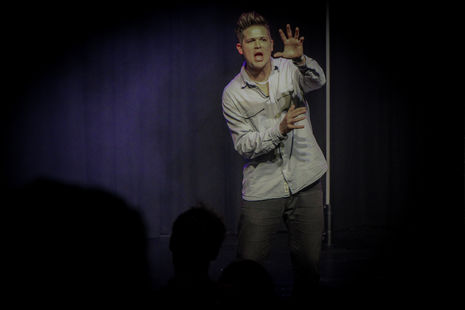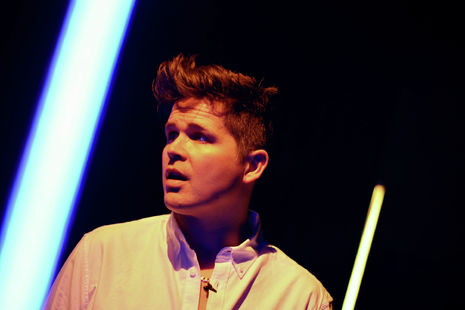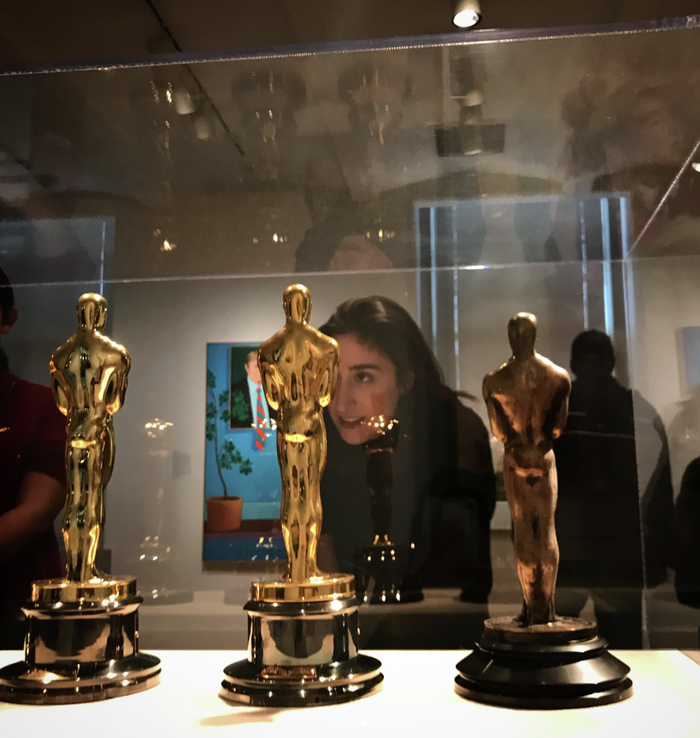Luke Wright on performing poetry
Alice LC speaks to Luke Wright, a poet, about his upcoming show “The Remains of Logan Dankworth”

How would you describe and summarise the show?
It is a story about a breakup, more specifically about a couple called Logan and Megan. Logan is a comedian who is trying to become a political commentator. He gets a column writing about politics in the lead up to Brexit. In this show, Brexit is going on in the background and everyone is picking their side and refusing to compromise. Logan is ignoring the needs of his partner, who wants to move away from London to raise their daughter. There are two opposing sides who want something different — a bit like Brexit. It is a personal story reflecting the larger political story. It is the third play of trilogy of plays which explore the personal and political. My first play, “Johnny Bevan”, talks about friendship and class through the friendship of a middle class and working-class guy at university. Blairism is in the background. The second play is about absolutism and people refusing to compromise, this time with Thatcherism in the background. My last, “The Remains of Logan Dankworth”, is about trust being broken. I play Logan Dankworth and the story is told in the present day.
How did the pandemic affect your tour and how will it feel once you go back on stage?
I have done this show a couple of times already, so I had to relearn the show. I have loved being on stage — I have been doing it for 22 years now. I am grateful to be there. At times I felt a bit exhausted from doing 100 gigs a year for 20 years but now I am well up for it.
“I set out wanting to write about big political shifts that have happened.”
How do you manage to connect the personal and political for the audience?
I set out wanting to write about big political shifts that have happened. In the case of Brexit, it was sort of still happening when I started writing about it. But it is hard to make people care about those issues deeply. Instead, I believe people care much more about people. So, I try to put in place a personal situation that reflects it. In this situation, the relationship between Logan and Megan was almost like a metaphor for the divorce. Brexit is often told as the divorce of Britain and Europe but that is not what really matters. It is the divorce that has happened between the British electorate, it is about the Remainers and the Leavers, the wedges that drove between people. I wanted to talk about what happens when people fall apart, and they cannot bring it back together. At the time around Brexit, neither side trusted the other. You do not have to care about Brexit to watch this play, it is happening in the background just like it is happening in the background for all of us. If anything, this play is not for political nerds but for the rest of us. Creating characters brings so much more to it. They are living, breathing people with hopes and dreams; we care about them. Hopefully, at the end of the play, you realise how the personal and political come together.
How do you discuss all these themes with spoken word poetry?
The thing to do is to follow the personal relationship. As far as the poetry goes, it is written in what I call free verse, but it is pretty much all in iambs, galloping along. It makes it more interesting to listen to and quite exciting. We, as people, love to listen to verse; we have since we were children being told nursery rhymes. When language becomes rhythmical like that, it knocks us back to childhood and captivates us. I am trying to hold everyone in the palm of my hands and tell them a story, hopefully devastate them, but give them some hope as well. I want people to come out feeling strangely hopeful about things but also do some crying — that is always the best response. I am an optimist, but I do think we need to look at our feelings. Ignoring our emotions feels easy but I do not think you should tailor your art to your mood. If it is successful, it should leave you changed in some small way.

What is your approach to Brexit in the play?
It is only 2021. Brexit has only started in 2020 but we have not really had the time to consider it due to the pandemic. In the show, at first, Logan is a Remainer but he is also not a hero. The play is pretty balanced; I understand why people voted Leave. I am a Remainer, but I thought about not voting – I eventually ended up doing so because it is my civic duty. I cannot bring myself not to. I think Boris Johnson is a self-aggrandising liar and following him into battle is something I would never do. We all have a concept of what Britain is (a sports team, an anthem, a history) — that is emotive stuff. There is no concept of what being in Europe is, no great poetry about that. You campaign in poetry and you govern in prose, and whoever had the better poetry was going to win that. Leave had the better poetry because Leave is all about being British, being patriotic, it is multigenerational and engrained in us.

Be Kind Rewind on feminism and film
 News / Eight Cambridge researchers awarded €17m in ERC research grants27 December 2025
News / Eight Cambridge researchers awarded €17m in ERC research grants27 December 2025 News / Downing investigates ‘mysterious’ underground burial vault 29 December 2025
News / Downing investigates ‘mysterious’ underground burial vault 29 December 2025 Lifestyle / Ask Auntie Alice29 December 2025
Lifestyle / Ask Auntie Alice29 December 2025 Sport / Hard work, heartbreak and hope: international gymnast Maddie Marshall’s journey 29 December 2025
Sport / Hard work, heartbreak and hope: international gymnast Maddie Marshall’s journey 29 December 2025 Interviews / Meet Juan Michel, Cambridge’s multilingual musician29 December 2025
Interviews / Meet Juan Michel, Cambridge’s multilingual musician29 December 2025









